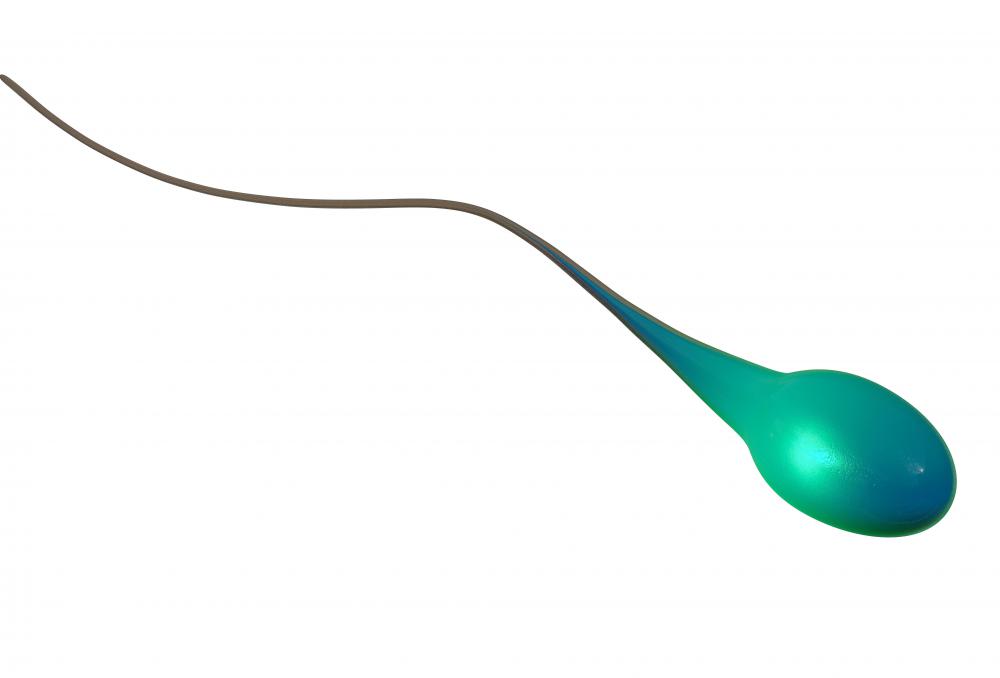At WiseGEEK, we're committed to delivering accurate, trustworthy information. Our expert-authored content is rigorously fact-checked and sourced from credible authorities. Discover how we uphold the highest standards in providing you with reliable knowledge.
What is Artificial Insemination?
Artificial insemination is a medical process that is used to help a woman become pregnant. Sperm, either collected from a woman's partner or a predetermined sperm donor, is placed in the cervix or uterus. Artificial insemination procedures that involve placing sperm into the cervix are called intracervical insemination or ICI. When sperm is placed into the woman's uterus, the procedure is referred to as intrauterine insemination or IUI.
Artificial insemination is usually the first procedure that is recommended when a woman is having trouble getting pregnant. It's less expensive and less invasive than In Vitro Fertilization (IVF). Couples with medically unexplained fertility problems have found that artificial insemination is significantly more effective than simply timing sexual intercourse to coincide with ovulation. However, it is important to be aware that many insurance policies will not cover the cost of artificial insemination regardless of the reason it is needed.

Among those with no personal experience in the area of assisted reproduction, it is commonly believed that artificial insemination greatly increases the chance of multiple births. However, neither ICI nor IUI increases the risk of a woman having twins or triplets unless the woman has been given special drugs to stimulate the ovaries before having the procedure completed. In all other aspects, a pregnancy resulting from artificial insemination is no different than one which results from sexual intercourse.

Artificial insemination has traditionally been used when there is thought to be a problem with the male partner's fertility or he carries a genetic disease that the couple does not wish to pass on to a child. In recent years, however, artificial insemination has been used by lesbian couples who want to have a child with a biological relationship to one of the partners. The procedure may also be used by single women who feel ready to raise a child despite their lack of a partner.

A woman who is considered using artificial insemination as a means to become pregnant may find herself wondering about the success rates for the procedure. Unfortunately, it can be very difficult to find accurate statistics regarding this topic. For IUI, the more common method of artificial insemination, it is commonly stated between 60 and 70 percent of patients are able to conceive within six cycles. However, success rates depend upon the age and general health of the woman, as well as the specific reasons for which the artificial insemination procedure is needed.
AS FEATURED ON:
AS FEATURED ON:














Discussion Comments
@dfoster85 - I remember reading about that study, too. I'm not sure if it differentiated between "regular" artificial insemination and IUI, intrauterine insemination. IUI gets the sperm a lot closer to the egg than sex does.
IUI can treat a lot of different causes of infertility, like low sperm motility and poor quality cervical mucus. (Cervical mucus keeps sperm alive until ovulation and helps it move toward the egg.)
I think, though, that the one-year recommendation (try for a year and then see a doctor) may be too short for women coming off birth control. If you are not having regular periods yet, your fertility might not have returned - it can take longer than most doctors think. If you are young, I would wait 18 months or so - my sister got pregnant after about that long, after not having her period for several months coming off birth control.
I don't understand - Why would artificial insemination help women get pregnant if they are using their partner's sperm? Isn't that the same thing, basically, as having sex - which wasn't getting them pregnant in the first place? I also remember seeing a recent study showing that Clomid and artificial insemination were not helpful for unexplained infertility.
Post your comments